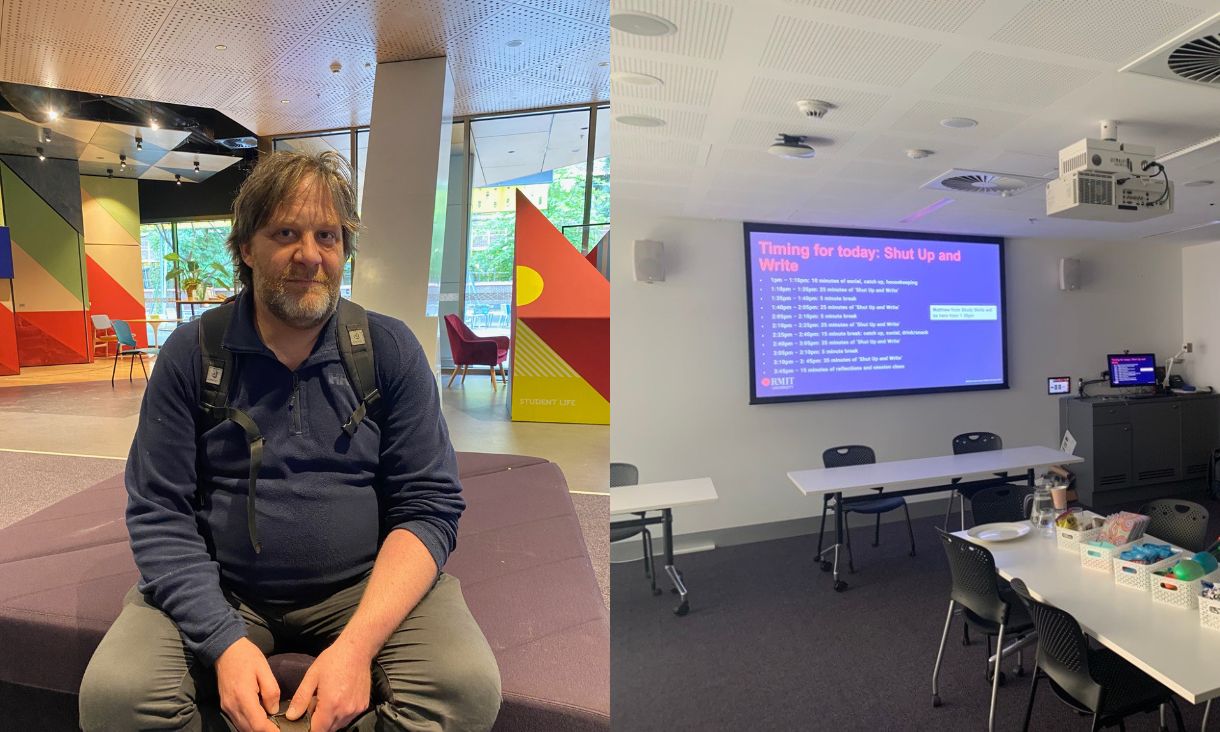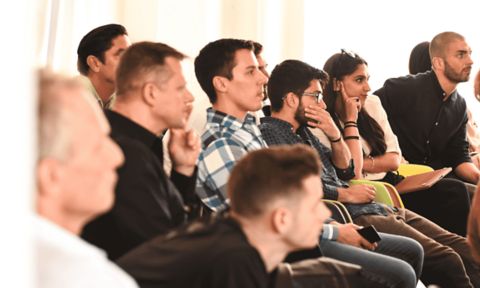The session provided relief and respite from the very taxing task of self-direction and self-control. From making the decision to attend, I gained focused, productive time and saved valuable energy to spend later in the day - RMIT student Cam
“I was very impressed with the cordiality, professionalism and understanding of the organisers,” said RMIT student Neil.
“The highlight was the free surprise fidget toys that were supplied, including twist bands and mini cups of playdough, not to mention the amazing notebooks, post-it pads, and gluten free snacks available. ADHD frequently takes my focus away from studying and having something like this nearby to help distract the distraction worked wonders,” said Neil.
The study sessions were a great success for both students and staff, to better learn how every student can be supported during their time at RMIT.
“These sessions were a great opportunity for our team to better understand how we can support neurodivergent students. Our team is looking forward to continuing this work as we aim to provide an inclusive space for all RMIT students to access our services, especially those who may need a little extra help or a different approach,” shared Anna Bicknell, RMIT's Library Senior Coordinator.
“We are all different, and yet many of us are being treated the same. I think information technologies offer great opportunities for more choices to be offered more often in course delivery in the university. Students could benefit from being able to follow the lecture slides on paper, or in large type. They could also participate more strongly in a lesson if they had advance copies of reading or text in an audio format,” explained Cam.
How to study using the Pomodoro Technique
You don’t need to wait until next semester to try out the ‘The Pomodoro Technique’! Developed by Francesco Cirillo in the late 1980s, anyone can use the technique to use structured settings for study or work by following these six steps:
Decide on the task to be done.
Set the pomodoro timer (typically for 25 minutes).
Work on the task.
End work when the timer rings and take a short break (typically 5–10 minutes).
If you have finished fewer than three pomodoros, go back to Step 2 and repeat until you go through all three pomodoros.
After three pomodoros are done, take the fourth pomodoro and then take a long break (typically 20 to 30 minutes). Once the long break is finished, return to step 2.








